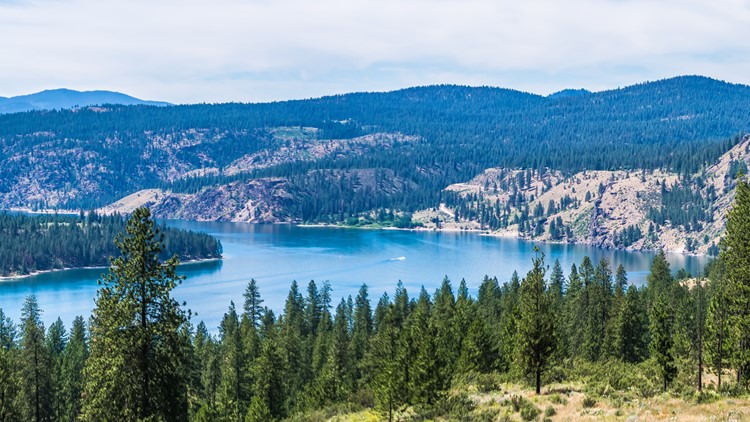BOISE, Idaho — U.S. officials are taking a big step involving a 1,200-mile (1,900-kilometer) hiking trail stretching from the Continental Divide to the Pacific Ocean.
The U.S. Forest Service is accepting comments through Oct. 30 on a comprehensive plan for the Pacific Northwest National Scenic Trail, which starts in Glacier National Park in Montana, crosses through northern Idaho and finishes in Olympic National Park in Washington.
The Forest Service wants to complete the plan by late 2023. It's a key document that will give state, federal and tribal land managers a guide for developing the non-motorized trail throughout its entire length. Currently, about a third of the trail is on roads and some portions in remote areas require bushwhacking with no trail.
“I love what it could be,” said Jeff Kish, executive director for the Pacific Northwest Trail Association. “The bones are there, but we still have to flesh it out.”
The comprehensive plan, he said, “gives us the opportunity to preserve what makes the trail so special.”
The trail was first proposed and crossed in the 1970s, with a handful of additional early adventurers making the trek in following years.
Congress approved the trail as the Pacific Northwest National Scenic Trail in 2009, making it the 11th trail added to the National Trails System that includes the Pacific Crest Trail, Appalachian Trail and Continental Divide Trail.
Kish, who completed the Pacific Northwest National Scenic Trail in 2014, estimates that fewer than 1,000 hikers have finished the route that includes significant elevation gain and loss when going through mountainous areas. In recent years, he said, about 75 people annually have attempted to complete the route, though not all are able to finish.
Completion and approval of the comprehensive plan and potential changes along the trail as a result could boost hiker numbers. The plan would look at how many hikers the trail can handle and such things as locating campgrounds.
Kish noted that, currently, many hikers might choose not to try the trail because so much of it is along roads.
The Forest Service will use the comments to develop a draft comprehensive plan and environmental assessment this winter that will be made public in the summer of 2023. The agency by December 2023 wants to sign a decision notice for the trail and implement the comprehensive plan. The comments will also help the agency determine what type of experience hikers want, trail conditions and future management.
Portions of the hiking trail are also open to cycling and the use of pack and saddle animals.
According to the Forest Service, the trail now includes 576 miles crossing land it manages, 237 miles of private land, 217 miles of National Park Service land and 89 miles of state land.
The private land poses a challenge because private land can change owners, and landowners can cut off access.
About 700 miles of the trail are cross-country on hiking trails or walking along beaches. The trail uses 438 miles of existing road, with 135 miles of that on paved roads. But the road sections would have to be replaced with non-motorized trails to meet the goals for a national scenic trail. With a finished comprehensive plan, land managers would have a document aiding in that process.
In northern Idaho, there's a 7-mile (11-kilometer) gap where hikers have to bushwhack across Forest Service land and land managed by the Idaho Department of Lands. The comprehensive plan could also help with those types of areas.
Among the objectives, the Forest Service said in its scoping document for the comprehensive plan, is to complete and maintain a non-motorized trail along the entire length that will “maximize the outdoor recreation potential of the Pacific Northwest Trail by providing premier settings and a nationally significant opportunity for long-distance hiking that complement or enhance opportunities for other compatible trail uses, particularly pack and saddle stock use and bicycling, where appropriate.”
In all, the trail crosses seven national forests, three national parks and portions of the Colville Reservation and Swinomish Reservation in Washington.
From the Continental Divide in Montana, hikers who manage to finish eventually end up on the beach in Olympic National Park.
“You spend the summer walking west until you literally can't take one more step west,” Kish said.
DOWNLOAD THE KREM SMARTPHONE APP
DOWNLOAD FOR IPHONE HERE | DOWNLOAD FOR ANDROID HERE
HOW TO ADD THE KREM+ APP TO YOUR STREAMING DEVICE
ROKU: Add the channel from the ROKU store or by searching for KREM in the Channel Store.
Fire TV: Search for "KREM" to find the free app to add to your account. Another option for Fire TV is to have the app delivered directly to your Fire TV through Amazon.
To report a typo or grammatical error, please email webspokane@krem.com.



